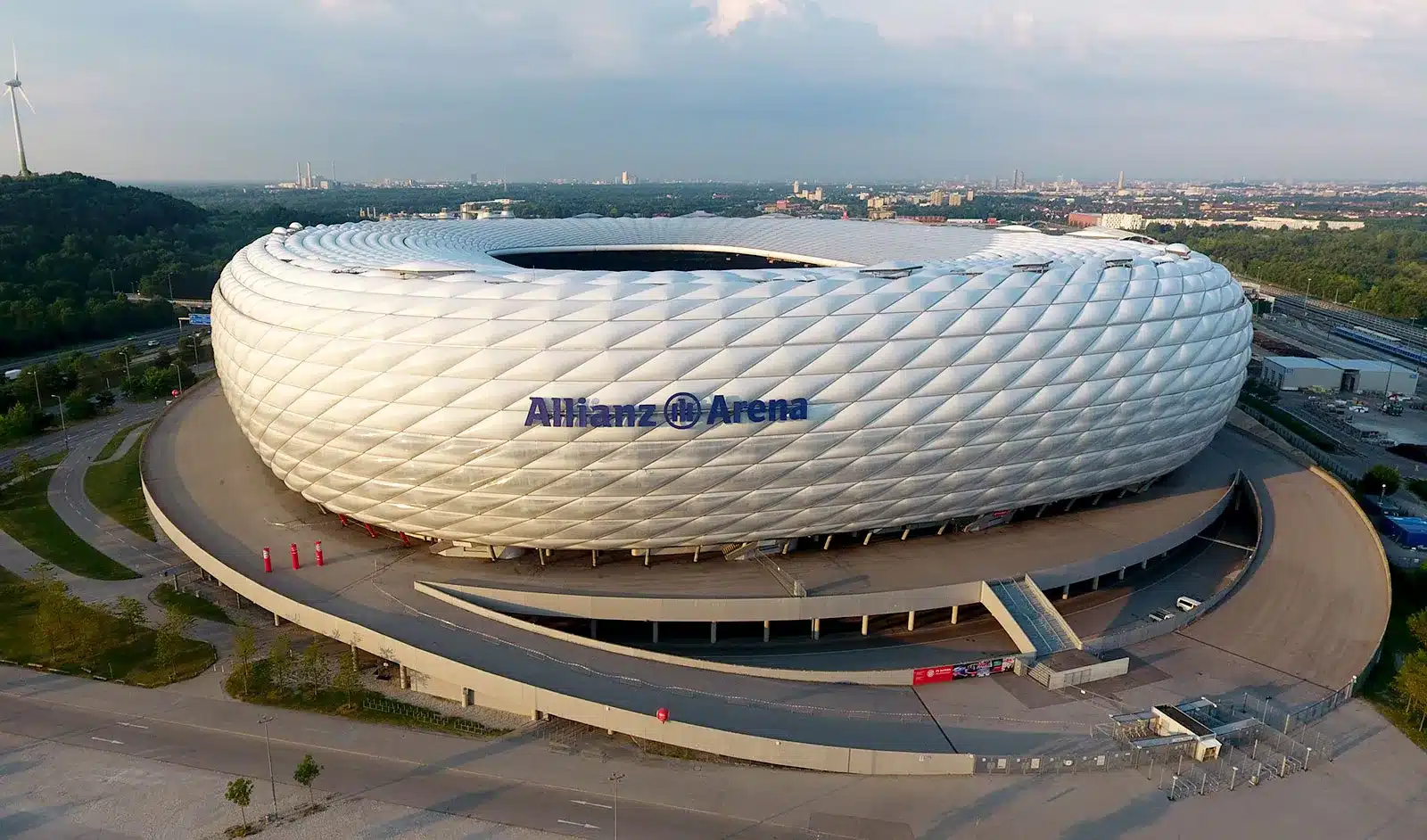Sports
Name, Location And Capacity Of All Stadiums To Host Euro 2024 Competition

Ten stadiums have been picked to host the most anticipated UEFA Euro 2024 tournament scheduled for play in Germany.
Naija News reports that the upcoming 2024 UEFA European Football Championship, or UEFA Euro 2024 or simply Euro 2024, will be the 17th instalment of the prestigious UEFA European Championship.
This quadrennial international football tournament, organized by UEFA for its member associations’ men’s national teams, will be hosted by Germany. The tournament is scheduled from 14 June to 14 July 2024.
Below are the list of stadiums where the competition will be played:
Berlin
In previous years, Berlin served as the host venue for significant sporting events such as the 1936 Olympics, the 2006 World Cup (including the final match), the 2009 World Athletics Championships, and the 2015 Champions League final.
The stadium was inaugurated in August 1936. Witnessed main renovation in 2000/2004. The original name of the stadium is Olympiastadion Berlin. It has a usual capacity of 74,500 but will host only 70,000 people during the Euro.
The resident club is Hertha Berlin (second division).
Munich
The original name of the stadium is Fussball Arena Muenchen. It will host 67,000 people during the Euros even though the stadium has a usual capacity of 75,000.
The resident club is Bayern Munich, and the stadium was inaugurated in May 2005.
Dortmund
The venue’s inauguration took place in April 1974, and it underwent major renovations in 1992, 1999, 2003, and 2006. Notably, it hosted the World Cup in 1974, the UEFA Cup (C3) final in 2001, and the World Cup in 2006. Looking ahead to Euro 2024, the venue is set to host four group stage matches, one last-16 match, and a semi-final.
The original name of the stadium is Westfalenstadion. The stadium will host 66,000 people during the 2024 Euros, though with a usual capacity of 81,365.
Borussia Dortmund is the current resident of the stadium.
Stuttgart
The venue’s inauguration took place in July 1933, and it underwent major renovations in 1951, 1993, 2004, and 2011, and is scheduled for another renovation in 2024.
Throughout history, the venue has hosted several prestigious events such as the Champions League final in 1959, World Cup in 1974, Champions League final in 1988, Euro 1988, World Athletics Championships in 1993, and World Cup in 2006.
During Euro 2024, the venue is set to host four group stage matches and one quarter-final, Naija News understands.
The original name of the venue is Neckarstadion and will host 54,000 people during the 2024 Euros.
VfB Stuttgart is the resident of the stadium which has an original capacity of 60,500
Hamburg
Hamburg stadium was inaugurated in July 1953, and it underwent major renovations in 1998-2000, 2006, and 2010, and is scheduled for another renovation in 2024, Naija News understands.
Notable events that took place in the past include the World Cup 1974, Euro 1988, World Cup 2006, the Europa League final 2010, and the reunification of the boxing heavyweight titles by Vladimir Klitschko and David Haye in 2011. During Euro 2024, the venue will host four group-stage matches and a quarter-final.
The stadium’s original name is Volksparkstadion and the resident club is Hamburg SV (second division). The venue has a usual capacity of 55,000 but will host 50,000 people during the Euros.
Duesseldorf
The original name of the stadium is Duesseldorfer Arena and it has the capacity to host at least 50,000 people. The resident club is Fortuna Duesseldorf (second division).
In January 2005, the stadium was inaugurated, marking the beginning of its illustrious journey. Over the years, it has been a witness to remarkable sporting moments, including the intense final eight of the Europa League in 2020. The stadium awaits the opening day of Euro 2024 men’s game, where it will proudly host three group stage matches, one last-16 match, and one quarter-final.
The stadium will host 47,000 people in the forthcoming Euros.
Cologne
The venue was established in September 1923, with significant refurbishments carried out in 1975 and 2004.
Historically, notable events held at the stadium include Euro 1988, the Confederations Cup in 2005, and the World Cup in 2006. Additionally, it hosted the last eight matches and the final of the Europa League in 2020.
Looking ahead to Euro 2024, the stadium is scheduled to host four group stage matches and one last 16 game.
The original name of the stadium is Muengersdorfer Stadion with a capacity of 50,000. Naija News reports that the stadium is the home ground for FC Cologne and will host 47,000 in the forthcoming Euro.
Frankfurt
The inauguration of the venue took place in May 1925, followed by extensions in 1937 and 1953. Subsequent renovations were carried out in 1974 and 2005.
Throughout its history, the stadium has hosted several notable events. It was the site of the World Cup in 1974, including the opening match. Additionally, it played host to the Euro 1988 tournament, the Confederations Cup in 2005, the World Cup in 2006, and the final of the 2011 Women’s World Cup.
Looking ahead to Euro 2024, the stadium is scheduled to hold four group-stage games and one last-16 match.
The 55,000 capacity stadium currently serves as the home ground for Eintracht Frankfurt.
The Waldstadion will, however, host only 48,000 spectators during the forthcoming Euro games.
Leipzig
The inauguration of the venue took place in November 2004, and it underwent an extension in 2021. Notably, it has hosted significant events in the past, including the Confederations Cup in 2005 and the World Cup in 2006. Looking ahead to Euro 2024, the stadium is set to host three group-stage games and one last-16 match.
The stadium has a capacity of 47,069 and currently serves as a playground for RB Leipzig. Its original name is Zentralstadion.
Gelsenkirchen
The venue was inaugurated in August 2001 and underwent a major renovation in 2005.
It has hosted several significant events in the past, including the Champions League final in 2004, the World Cup in 2006, the opening match of the 2010 Ice Hockey World Cup, and the last eight of the Europa League in 2020. During Euro-2024, it will host three group-stage games and one last-16 match.
The 54,740-capacity venue will host only 50,000 during the forthcoming Euro. The resident club is Schalke 04 (second division) and the original name of the stadium is Arena AufSchalke.












